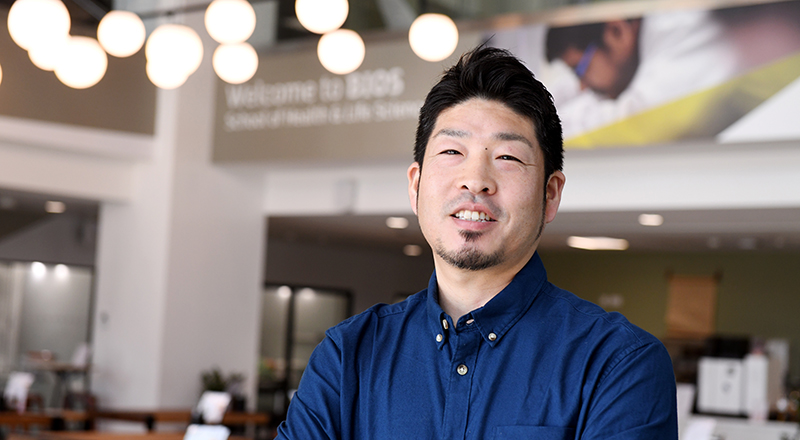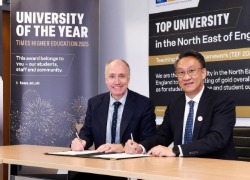Academy of Medical Sciences Springboard award for talented researcher
A Teesside University academic has been awarded £125,000 from the Academy of Medical Sciences Springboard programme, as part of a funding initiative to support early-career researchers.

Dr Takanori Furukawa, Vice-Chancellor’s Research Fellow in the University’s School of Health & Life Sciences, is one of 62 researchers across 41 institutions to receive a share of funding to support work across the spectrum of biomedical sciences.
Each researcher will receive up to £125,000 from the Academy’s Springboard programme, alongside mentoring and career development support to help establish their research careers.
Dr Furukawa is a fungal molecular biologist with more than 15 years research experience in medical mycology and fungal biotechnology. The award will support his ongoing research aimed at unravelling the role of epigenetics, a fundamental biological process that regulates gene expression, in fungal infection biology.
“I am absolutely delighted to have received the Springboard Award, especially as it provides an exciting opportunity to explore new frontiers in fungal infection biology, and to address the critical global challenges of fungal infections and fungal antimicrobial resistance (AMR),” said Dr Furukawa.
"I look forward to deepening our understanding of fungal infection biology and ultimately pursuing my goal of saving lives from fungal diseases through basic research.”
Support for the Springboard programme comes from the UK Government’s Department for Science, Innovation and Technology, Wellcome and the British Heart Foundation. The programme supports researchers across biomedical sciences, from molecular biology to public health, with a geographical spread across the UK.
Dr Furukawa added: “The global impact of human fungal pathogens is huge but underappreciated. More than 300 million individuals are affected by serious fungal infections, and around 3.8 million people die from fungal diseases every year. Advancing our knowledge of the biology of human fungal pathogens is crucial to understanding why fungal pathogens cause human fungal infections and how they acquire resistance to antifungal drugs.”
The project will enable Dr Furukawa to address these important subjects from a fresh perspective and has the potential to open new avenues for developing novel therapeutic approaches to combat fungal diseases.
Professor James Naismith FRS FRSE FMedSci, Vice-President (Non-Clinical) at the Academy of Medical Sciences, said: “This record investment demonstrates our unwavering commitment to supporting the next generation of research leaders. By backing these talented early-career researchers, we’re not only addressing today’s urgent health challenges but also strengthening the UK’s position as a global leader in medical research.”
UK Science Minister Lord Vallance FMedSci said: “Through this programme we are supporting the next generation of researchers to lead their own groundbreaking research so that the UK can continue to be a pioneer in medical science.”
 Groundbreaking project to unlock nuclear energy's role in
...
Groundbreaking project to unlock nuclear energy's role in
... Start the new year by expanding your knowledge
Start the new year by expanding your knowledge  Teesside University strengthens long-standing partnership
...
Teesside University strengthens long-standing partnership
...